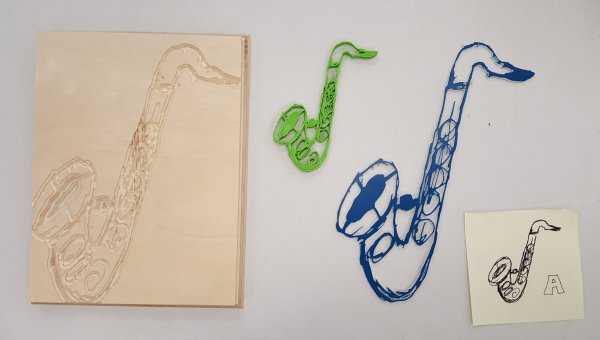
Four Saxes: An original drawing (right) scanned and re-conceived with 3 different digital fabrication tools: Engraved in wood (ShopBot CNC router), 3D printed with ABS plastic (Ultimaker 3D printer), and laser cut out of thin acrylic (Epilog laser).
Early in May, I visited Polk County, Florida as a part of a TIES team. Polk County now has digital fabrication labs (FabLabs) in 6 magnet middle schools, and more labs are spreading down into the elementary school level. The county’s investment in training their teachers is impressive. Teachers and resource staff from four middle schools spent four days at Lake Alfred PolyTech Academy honing their CAD design and machine skills. Their fields included theater, social studies, language arts, business, art and photography, home building/construction, and math. Some of the resource and support staff who had been part of the install teams and/or participated in the training for middle schools then served as instructors for the 27 elementary school teachers who attended three days of training later in the week.
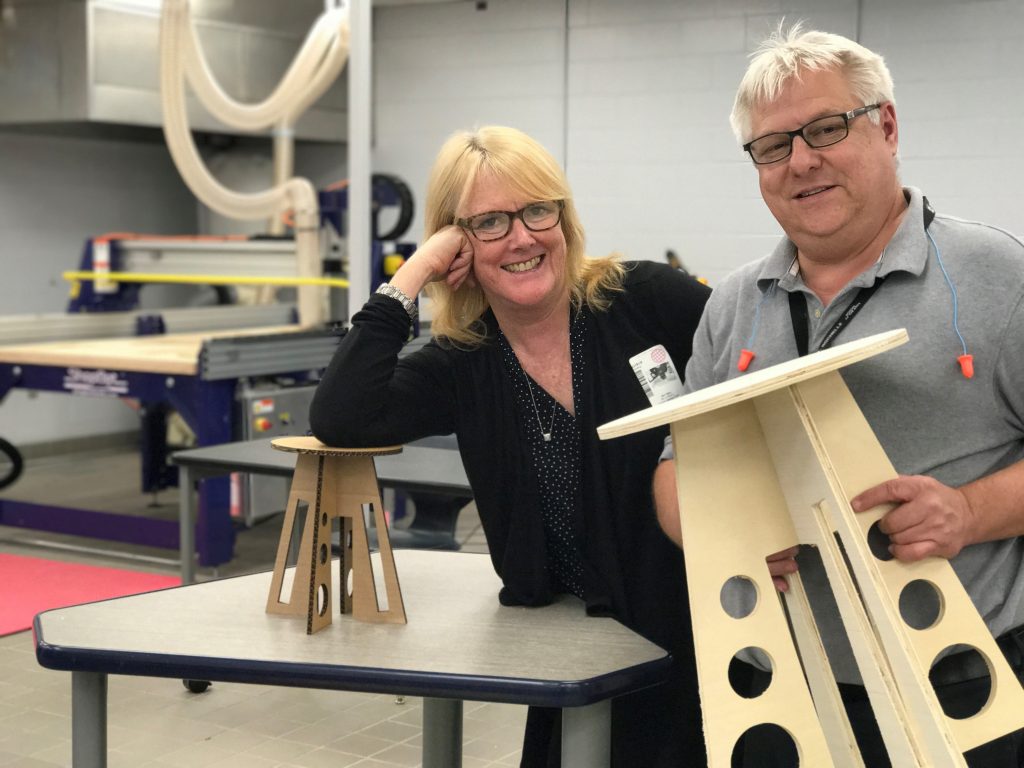
Sallye with Rick Runion, art teacher and FabLab manager at Rochelle School of the Arts in Lakeland, FL. Rick designed his step stool in VCarve Pro, then scaled it down to create a prototype in cardboard on the Epilog laser cutter before cutting the real one out of plywood on the ShopBot PRSalpha.
Continuing their mission of making digital fabrication available to all in Polk County, Carla McMullen, Senior Coordinator of Operations & Evaluation (MSAP) in the Office of Acceleration & Innovation for Polk County Schools, invited teachers and administrators of schools that do not currently have digital fabrication labs to visit the new mini lab at the district headquarters. Some equipment, like the Handibot® Smart Power Tool, can be checked out of the office for use in the schools. Teachers can also make an appointment to bring small groups of students to use the Full Spectrum laser, Roland vinyl cutter, and Ultimaker 3D printer in the office.
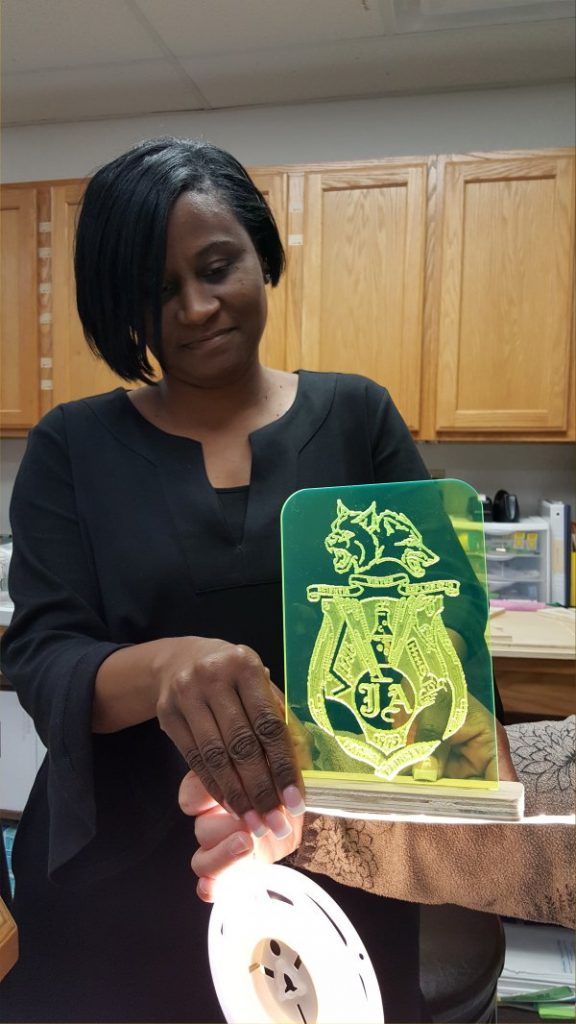
Mixing LEDS’s and CNC machining. A teacher from Jewett Academy used the Handibot to carve the school logo in acrylic, then lit up the sign with a strip of LED’s.
Handibot’s Brian Owen joined a couple of the trainings to observe how teachers are using Handibots in school settings. Polk County chose Handibot as the CNC for their elementary schools because it is capable of doing great (and intricate) things while being easy to use and having a friendly demeanor. This makes them a good case study in education for Brian and the other people at Handibot.
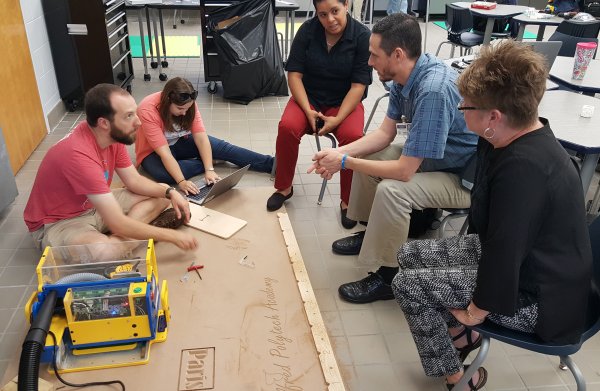
Brian (left) deep in conversation with the teachers who will be using the Handibot in early school and middle school education. Note the files that the Handibot has carved in the plywood sheets laid out on the floor of the lab.
It is a lot to introduce a whole new set of equipment, software and techniques into the school day and expect teachers to immediately embrace it. The Administration at Polk County is committed to making it work. By giving the teachers sufficient time and training, they can become confident enough to share the possibilities with their students. The Administration also supports the development of new curricula that go beyond just using the tools. Finally, schools are encouraged to connect with their communities and develop business relationships that will both sustain the labs, and introduce the students to real world problems and solutions.
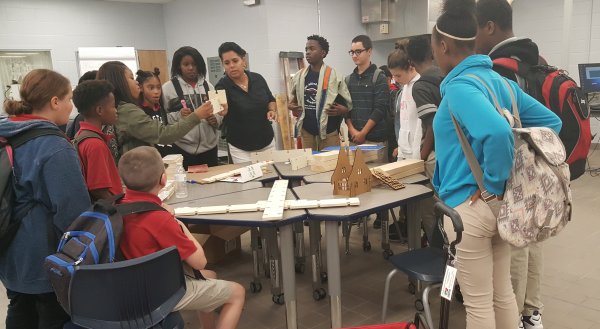
Ms. Vega showing of her students some of the possibilities.
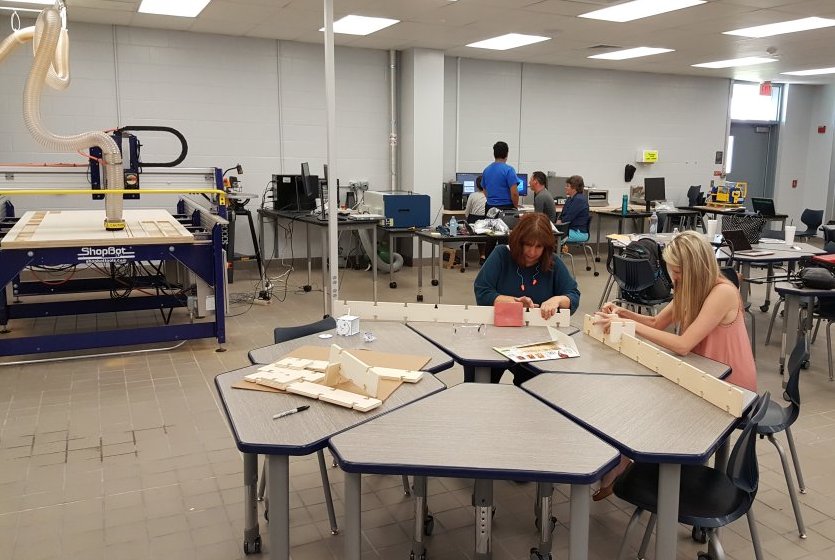
Mijana and Candy sanding Linkerlogs. Mijana is developing a curricula where the middle school students will fabricate the Linkerlogs on the ShopBot, and elementary students will use them in their math and other classes.